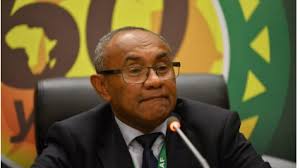By Andrew Warshaw
March 23 – The new leader of African football held a senior political role at the time he was elected last week, throwing into question whether FIFA should have allowed him to stand against Issa Hayatou.
As well as being head of the Madagascan FA (MMF), Ahmad Ahmad, a former government minister, was vice-president of the Madagascan Senate throughout his successful campaign to unseat Hayatou, raising the issue of double standards and whether Fifa had ignored its own rules over government interference.
Ahmad, who had held the Senate position for a year, resigned on Monday, four days after (not before) ending the 29-year reign of Hayatou as president of the Confederation of African Football with a stunning election victory.
Ahmad is a two-time government minister and his Senate role, a high-ranking parliamentary position, prompted legitimate concerns as to why he was able to pass an eligibility test both for the CAF presidency and a place on FIFA’s ruling Council.
Such concerns were heightened by the fact that FIFA recently banned Russian vice-president and FA chief Vitaly Mutko from re-election to its Council for seemingly similar conflict of interest reasons.
Though there is no evidence to suggest that FIFA president Gianni Infantino manipulated the eligibility of the previously little-known Ahmad, it has been widely reported that behind the scenes the FIFA president supported the campaign to overthrow Hayatou.
In a statement released to Insideworldfootball clarifying why Ahmad was cleared, FIFA’s governance committee explained that there was a distinction, under the code of ethics rules on conflict of interest, between being a government minister and an elected political representative.
“The Government is an executive body while parliament is representative,” the committee said.
Yet, tellingly, it appeared to suggest that it was not entirely comfortable with what does and doesn’t constitute conflict of interest.
“Even if the Governance Committee might consider (for it) to be desirable for other political positions to also be addressed by the rules, it considered that, at the present stage, it is only with respect to government positions that there is a clear legal basis that can, beyond any doubt, be used in assessing eligibility and admissibility for the FIFA Council.”
“The Governance Committee was also well aware of the fact that there have indeed been cases in the past of governmental membership of the Council even if, in the opinion of the Governance Committee, in glaring contradiction with FIFA rules and the practice of suspending national Associations for government interference.”
Ahmad may not be out of the woods quite yet, however.
The new head of African football is rumoured to be under preliminary investigation by FIFA’s ethics watchdogs over his links to disgraced former FIFA vice-president Mohamed Bin Hammam.
If it is confirmed, as emails reportedly suggest, that he requested funds from bin Hammam, he seems certain to be kicked out of FIFA, throwing the entire African leadership apparatus into unprecedented chaos.
Contact the writer of this story at moc.l1745006752labto1745006752ofdlr1745006752owedi1745006752sni@w1745006752ahsra1745006752w.wer1745006752dna1745006752
